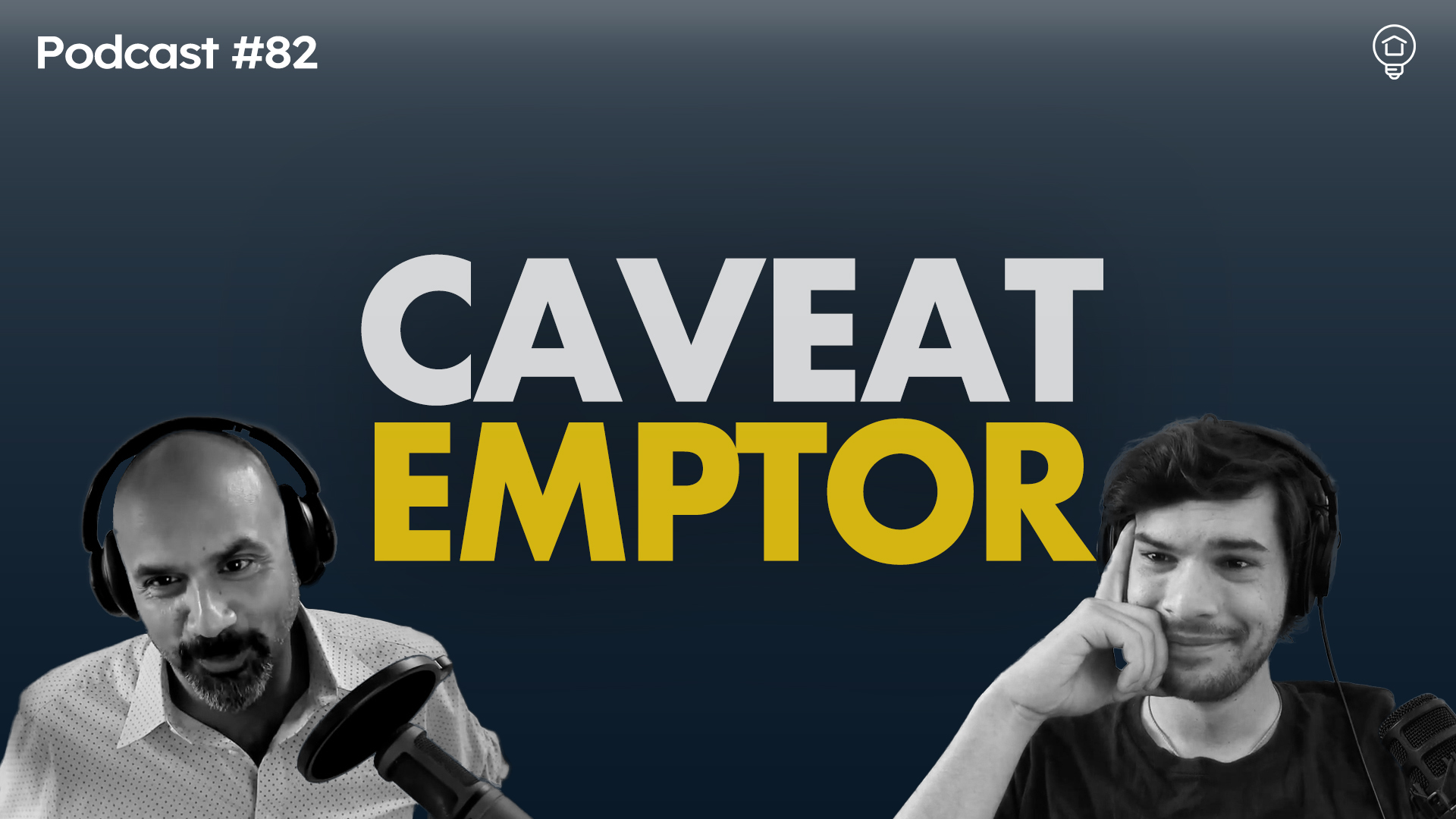How to Find a Great Real Estate Agent – 12 Interview Questions
by Osman Parvez
—-
Recently, I’ve helped a number of friends and family members find real estate agents in places outside our local market. With Realty Unique’s consumer focus and growing online presence we often get these requests. We’re happy to help.
Yet even with our expertise in real estate, the process to find a good agent can be challenging. In the last few months, I’ve been getting a fresh taste of what many buyers and sellers go through. Maybe it was a good thing. My recent experiences are the basis for this post. I hope it helps you choose a better real estate agent.
A good way to find an agent is to develop a short list of potential agents with expertise in your local market and interview them, preferably in person (not over the phone). Before you begin, be sure you know the difference between a buyer’s agent and a seller’s (or listing) agent. Some buyers, particularly first-time buyers, don’t understand that a listing agent’s primary responsibility is to the seller.
First you’ll need to do a little homework to develop a list of agents to interview. You can do this by talking to friends and family members and asking if they recommend anyone. You should also research agents online, checking for their expertise in your local market. Look for a well designed and solid web presence. Read their bios and spend some time on their website to see if you get a sense for how they work with their clients and for their level of professionalism.
Once you’ve narrowed it down to a handful of potential agents, you’re ready to schedule interviews. Call and set-up a time for an interview. Meet them at your home, a coffee shop, or their office – whichever is most convenient. Sometimes meeting them outside their office is actually better, it might let you focus on the agent and not by influenced by office decor. Odds are you won’t be visiting the office more than once or twice anyway. By the way, the agent’s responsiveness to your phone call is another test. If you get voice mail and the agent takes a long time to return your call, that’s not a good sign. If you have a long list of agents to interview, use their lack of responsiveness as the excuse you need to drop the agent from consideration.
Below are twelve questions you can ask during the interview. Keep in mind that there no right or wrong responses. The questions were generally designed to help you get a sense for the way the agent thinks, their ethics and integrity, and how they might help your real estate situation. In some cases, the question itself is aimed squarely at a possible ethical conflict. In brackets after each question, I’ve given you a little more detail and some of the rationale behind the question.
1. Warm up question: How did you get into the real estate profession? [This is an easy one to get the conversation rolling. What you’re looking for is enthusiasm for the business, commitment, and experience. As a general interview tip, it’s a good idea to keep conversation light before you start delving into the other questions. You may wish to ask about their involvement in the community as well. Participating in civic and local non-profits are a good sign that the agent has strong ethics and community oriented values. ]
2. What’s your preferred negotiation strategy? Or.. How might you go about negotiating an offer to buy/sell for me? [Ultimately, the agent should follow your instructions for how to handle your transaction so look for fresh ideas and a well thought-out response. Most people will buy or sell real estate only a handful of times. Your agent will likely be handling a lifetime of negotiations every month. Their negotiation experience and skills become valuable and seasoned advice that could save you time, money, and frustration. ]
3. Agents have an incentive to close deals quickly. How do you give buyers/sellers honest advice? [This hits a classic conflict of interest. Typically, an agent won’t get paid unless the client actually buy something. Yet, in order to best serve the interests of a client, agents may need to advise clients not to buy or sell a particular home or in some cases, to not buy or sell at all. At Realty Unique, we see ourselves as advisers. Our goal is to provide honest, objective advice even when the results do not result in a commission. We may lose some clients in the short-term, but we believe we’ll grow our business in the long term by serving the best interests of our clients.]
4. How do you distinguish yourself from your competition. What makes you a better choice than other agents? [This question give the agent a chance to highlight what they have to offer and it reflects their professionalism. Ideally, the agent’s response should focus on their strengths but pay close attention when they talk about other agents. What they say about other agents may reflect more on themselves. It’s a litmus test for their professionalism.]
5. What’s the toughest part of your job? [This question may give you insight into what a working relationship might look like down the road. The question is also a bit of a trap. If they say “nothing” or that they “love everything,” either they’re inexperienced or they are being dishonest. There are some very tough aspects of the real estate profession.]
6. Have you ever been subject to action by the real estate board or commission? If yes, what happened? If no, ask if they’ve ever had a grievance with a client that was challenging to solve and what they did to fix the situation. [Use your state’s real estate commission website to check the status of their license and whether they’ve had any recent disciplinary action. It’s not a red-flag by itself, however a pattern of unethical/illegal behavior is troubling. Ask about any disciplinary action you find. How the agent resolved the situation tells you whether they think in terms of win-wins. It will also let you see how he speaks/thinks about his or her clients after the deal.]
7. What neighborhoods should I look at? Which areas should I avoid? Why? [This is an easy question but also another test. Real estate agents must abide by fair housing laws and cannot make discriminatory statements. They also are prohibited from steering clients into neighborhoods, good or bad. In my opinion, a correct approach to answering this question is to (a) understand what the client is looking for by asking for specifics. What does a “good” neighborhood mean? and (b) determine how to best help, within the constraints of fair housing laws. The question is really an invitation for the agent to start asking you questions, to get a sense of what you’re looking for. If they rush to suggesting neighborhoods without understanding your situation, it’s not a good sign. ]
8. How are real estate conditions and what will you do to market my home ? [Look for answers that reflect current conditions in the market and for suggestions that help your home stand out from the competition. When they say the market is good/bad, ask for more details (is that at all price ranges?) and how they know. Generalisms about the market are meaningless because conditions vary strongly by price range and location. Watch for marketing approaches that have little impact, including most newspaper/periodical advertising. Strong web marketing strategies and a wide professional network are a plus. Note: If you’re a buyer and not selling a property, you can still use this question by phrasing it hypothetically. ]
9. What’s your process for helping me figure out how much my home is worth? [Pricing is critical in normal and down markets. If you “test the market” with a high price and it turns out to be too high, your home will probably be on the market for a long time. If you under-price, you leave money on the table. The “no-brainer” answer is to look at the comparables. However, using the the MLS website to spit out an automated comparative market analysis (or CMA) without further work is a disservice to the client. That approach often leaves large margins of error as there are big differences between homes that may at first appear to be comparable. To provide you with accurate guidelines for value, agents should personally visit homes and take the time to do an in-depth analysis. At Realty Unique, we put in a great deal of effort to help clients price their home for maximum value. We call it an “Opinion of Value”, a investment banking term that more accurately reflects the level of due diligence required. Note: If you’re a buyer and not selling a property, you can still use this question by phrasing it hypothetically]
10. How many clients are you currently working with and what is your availability? Will you be helping me yourself or will you delegate my transaction to an associate or assistant? [Is the agent taking on more than they can realistically handle or handle well? Do they have any vacations planned for the next 6-8 weeks? Do they have a team or assistants that can help out? At Realty Unique, we work one on one with our clients. This gives us the ability to better serve clients during peak weekend periods. In some cases, we may rely on assistants and other business partners to help, however most of the time, you’re dealing directly with us. It’s critically important that the agent you pick is available and responsive. ]
11. Do you have any real estate designations? What do they mean or how does that help you provide better service? How many hours of education were required to earn the designation? [Look for a pattern of continuing education and commitment to the profession. Real estate designations are a form of continuing education and reflect an agent’s continuing efforts to serve clients at the highest possible level.]
12. How good are you using the Internet to better serve your clients? How often will you update me on showings (for sellers) or newly available property (for buyers)? [More than 80% of real estate transactions begin online. You obviously want an agent that’s web savvy. Old pros may have a great deal to offer in the way of experience, but if they struggle to send an email or don’t know how to set-up an online search properly, you could lose out. Sometimes an ideal pairing is an older, experienced agent with a younger, technologically sophisticated associate or assistant. At Realty Unique, we spend a great deal of time marketing online and learning about the latest tools that might help our clients get an edge. Sometimes we’re even developing those tools ourselves, for example.. this blog and our Boulder development map.]
When you’re finished interviewing, it’s time to make your decision. Review your notes. How would you rate the agents’ responses? Don’t forget to consider the soft stuff. What isn’t said is often more reflective than what is said. How was their professionalism? Did they show up on time? Did they seem enthusiastic and willing to work hard for you? Were they hurried or did they seem disorganized? How did they treat you and your questions, particularly the ones that were difficult to answer? At the end of the day, don’t forget to consider how comfortable you feel with the agent. Sometimes, agents will answer questions well but something just doesn’t feel right. I suggest you trust your instincts.
Carefully choosing your agent will be well rewarded in the time, money, and frustration it saves you. The best agents create a positive, enjoyable environment and help transactions go smoothly. When your nerves are at an end because of an inspection issue, they’re the voice of calm in the storm. They can add reassurance in moments of doubt, and give you advice that results in a far better experience than you ever imagined. That’s why the vast majority of successful real estate investors rely on talented, hard working agents.
If you’d like to consider us for your real estate needs, please call us at 303.746.6896. If you’re not in the Boulder regional market, we’re also happy to help you an agent that specializes in your community.
Image credit: KellyK
—-
Want to get blog updates via email? Click HERE.
Ready to buy or sell? Schedule an appointment or call 303.746.6896.
You can also like our Facebook page or follow us on Twitter.
As always, your referrals are deeply appreciated.
—
The ideas and strategies described in this blog are the opinion of the writer and subject to business, economic, and competitive uncertainties. We strongly recommend conducting rigorous due diligence and obtaining professional advice before buying or selling real estate.
How to Find a Great Real Estate Agent – 12 Interview Questions
by Osman Parvez
—-
Recently, I’ve helped a number of friends and family members find real estate agents in places outside our local market. With Realty Unique’s consumer focus and growing online presence we often get these requests. We’re happy to help.
Yet even with our expertise in real estate, the process to find a good agent can be challenging. In the last few months, I’ve been getting a fresh taste of what many buyers and sellers go through. Maybe it was a good thing. My recent experiences are the basis for this post. I hope it helps you choose a better real estate agent.
A good way to find an agent is to develop a short list of potential agents with expertise in your local market and interview them, preferably in person (not over the phone). Before you begin, be sure you know the difference between a buyer’s agent and a seller’s (or listing) agent. Some buyers, particularly first-time buyers, don’t understand that a listing agent’s primary responsibility is to the seller.
First you’ll need to do a little homework to develop a list of agents to interview. You can do this by talking to friends and family members and asking if they recommend anyone. You should also research agents online, checking for their expertise in your local market. Look for a well designed and solid web presence. Read their bios and spend some time on their website to see if you get a sense for how they work with their clients and for their level of professionalism.
Once you’ve narrowed it down to a handful of potential agents, you’re ready to schedule interviews. Call and set-up a time for an interview. Meet them at your home, a coffee shop, or their office – whichever is most convenient. Sometimes meeting them outside their office is actually better, it might let you focus on the agent and not by influenced by office decor. Odds are you won’t be visiting the office more than once or twice anyway. By the way, the agent’s responsiveness to your phone call is another test. If you get voice mail and the agent takes a long time to return your call, that’s not a good sign. If you have a long list of agents to interview, use their lack of responsiveness as the excuse you need to drop the agent from consideration.
Below are twelve questions you can ask during the interview. Keep in mind that there no right or wrong responses. The questions were generally designed to help you get a sense for the way the agent thinks, their ethics and integrity, and how they might help your real estate situation. In some cases, the question itself is aimed squarely at a possible ethical conflict. In brackets after each question, I’ve given you a little more detail and some of the rationale behind the question.
1. Warm up question: How did you get into the real estate profession? [This is an easy one to get the conversation rolling. What you’re looking for is enthusiasm for the business, commitment, and experience. As a general interview tip, it’s a good idea to keep conversation light before you start delving into the other questions. You may wish to ask about their involvement in the community as well. Participating in civic and local non-profits are a good sign that the agent has strong ethics and community oriented values. ]
2. What’s your preferred negotiation strategy? Or.. How might you go about negotiating an offer to buy/sell for me? [Ultimately, the agent should follow your instructions for how to handle your transaction so look for fresh ideas and a well thought-out response. Most people will buy or sell real estate only a handful of times. Your agent will likely be handling a lifetime of negotiations every month. Their negotiation experience and skills become valuable and seasoned advice that could save you time, money, and frustration. ]
3. Agents have an incentive to close deals quickly. How do you give buyers/sellers honest advice? [This hits a classic conflict of interest. Typically, an agent won’t get paid unless the client actually buy something. Yet, in order to best serve the interests of a client, agents may need to advise clients not to buy or sell a particular home or in some cases, to not buy or sell at all. At Realty Unique, we see ourselves as advisers. Our goal is to provide honest, objective advice even when the results do not result in a commission. We may lose some clients in the short-term, but we believe we’ll grow our business in the long term by serving the best interests of our clients.]
4. How do you distinguish yourself from your competition. What makes you a better choice than other agents? [This question give the agent a chance to highlight what they have to offer and it reflects their professionalism. Ideally, the agent’s response should focus on their strengths but pay close attention when they talk about other agents. What they say about other agents may reflect more on themselves. It’s a litmus test for their professionalism.]
5. What’s the toughest part of your job? [This question may give you insight into what a working relationship might look like down the road. The question is also a bit of a trap. If they say “nothing” or that they “love everything,” either they’re inexperienced or they are being dishonest. There are some very tough aspects of the real estate profession.]
6. Have you ever been subject to action by the real estate board or commission? If yes, what happened? If no, ask if they’ve ever had a grievance with a client that was challenging to solve and what they did to fix the situation. [Use your state’s real estate commission website to check the status of their license and whether they’ve had any recent disciplinary action. It’s not a red-flag by itself, however a pattern of unethical/illegal behavior is troubling. Ask about any disciplinary action you find. How the agent resolved the situation tells you whether they think in terms of win-wins. It will also let you see how he speaks/thinks about his or her clients after the deal.]
7. What neighborhoods should I look at? Which areas should I avoid? Why? [This is an easy question but also another test. Real estate agents must abide by fair housing laws and cannot make discriminatory statements. They also are prohibited from steering clients into neighborhoods, good or bad. In my opinion, a correct approach to answering this question is to (a) understand what the client is looking for by asking for specifics. What does a “good” neighborhood mean? and (b) determine how to best help, within the constraints of fair housing laws. The question is really an invitation for the agent to start asking you questions, to get a sense of what you’re looking for. If they rush to suggesting neighborhoods without understanding your situation, it’s not a good sign. ]
8. How are real estate conditions and what will you do to market my home ? [Look for answers that reflect current conditions in the market and for suggestions that help your home stand out from the competition. When they say the market is good/bad, ask for more details (is that at all price ranges?) and how they know. Generalisms about the market are meaningless because conditions vary strongly by price range and location. Watch for marketing approaches that have little impact, including most newspaper/periodical advertising. Strong web marketing strategies and a wide professional network are a plus. Note: If you’re a buyer and not selling a property, you can still use this question by phrasing it hypothetically. ]
9. What’s your process for helping me figure out how much my home is worth? [Pricing is critical in normal and down markets. If you “test the market” with a high price and it turns out to be too high, your home will probably be on the market for a long time. If you under-price, you leave money on the table. The “no-brainer” answer is to look at the comparables. However, using the the MLS website to spit out an automated comparative market analysis (or CMA) without further work is a disservice to the client. That approach often leaves large margins of error as there are big differences between homes that may at first appear to be comparable. To provide you with accurate guidelines for value, agents should personally visit homes and take the time to do an in-depth analysis. At Realty Unique, we put in a great deal of effort to help clients price their home for maximum value. We call it an “Opinion of Value”, a investment banking term that more accurately reflects the level of due diligence required. Note: If you’re a buyer and not selling a property, you can still use this question by phrasing it hypothetically]
10. How many clients are you currently working with and what is your availability? Will you be helping me yourself or will you delegate my transaction to an associate or assistant? [Is the agent taking on more than they can realistically handle or handle well? Do they have any vacations planned for the next 6-8 weeks? Do they have a team or assistants that can help out? At Realty Unique, we work one on one with our clients. This gives us the ability to better serve clients during peak weekend periods. In some cases, we may rely on assistants and other business partners to help, however most of the time, you’re dealing directly with us. It’s critically important that the agent you pick is available and responsive. ]
11. Do you have any real estate designations? What do they mean or how does that help you provide better service? How many hours of education were required to earn the designation? [Look for a pattern of continuing education and commitment to the profession. Real estate designations are a form of continuing education and reflect an agent’s continuing efforts to serve clients at the highest possible level.]
12. How good are you using the Internet to better serve your clients? How often will you update me on showings (for sellers) or newly available property (for buyers)? [More than 80% of real estate transactions begin online. You obviously want an agent that’s web savvy. Old pros may have a great deal to offer in the way of experience, but if they struggle to send an email or don’t know how to set-up an online search properly, you could lose out. Sometimes an ideal pairing is an older, experienced agent with a younger, technologically sophisticated associate or assistant. At Realty Unique, we spend a great deal of time marketing online and learning about the latest tools that might help our clients get an edge. Sometimes we’re even developing those tools ourselves, for example.. this blog and our Boulder development map.]
When you’re finished interviewing, it’s time to make your decision. Review your notes. How would you rate the agents’ responses? Don’t forget to consider the soft stuff. What isn’t said is often more reflective than what is said. How was their professionalism? Did they show up on time? Did they seem enthusiastic and willing to work hard for you? Were they hurried or did they seem disorganized? How did they treat you and your questions, particularly the ones that were difficult to answer? At the end of the day, don’t forget to consider how comfortable you feel with the agent. Sometimes, agents will answer questions well but something just doesn’t feel right. I suggest you trust your instincts.
Carefully choosing your agent will be well rewarded in the time, money, and frustration it saves you. The best agents create a positive, enjoyable environment and help transactions go smoothly. When your nerves are at an end because of an inspection issue, they’re the voice of calm in the storm. They can add reassurance in moments of doubt, and give you advice that results in a far better experience than you ever imagined. That’s why the vast majority of successful real estate investors rely on talented, hard working agents.
If you’d like to consider us for your real estate needs, please call us at 303.746.6896. If you’re not in the Boulder regional market, we’re also happy to help you an agent that specializes in your community.
Image credit: KellyK
—-
Want to get blog updates via email? Click HERE.
Ready to buy or sell? Schedule an appointment or call 303.746.6896.
You can also like our Facebook page or follow us on Twitter.
As always, your referrals are deeply appreciated.
—
The ideas and strategies described in this blog are the opinion of the writer and subject to business, economic, and competitive uncertainties. We strongly recommend conducting rigorous due diligence and obtaining professional advice before buying or selling real estate.
Share This Listing!
More about the author
Osman Parvez
Owner & Broker at House Einstein as well as primary author of the House Einstein blog with over 1,200 published articles about Boulder real estate. His work has appeared in the Wall Street Journal and Daily Camera.
Osman is the primary author of the House Einstein blog with over 1,200 published articles about Boulder real estate. His work has also appeared in many other blogs about Boulder as well as mainstream newspapers, including the Wall Street Journal and Daily Camera. Learn more about Osman.
Work with
House Einstein
Thinking about buying or selling and want professional advice?
Call us at 303.746.6896
Your referrals are deeply appreciated.














